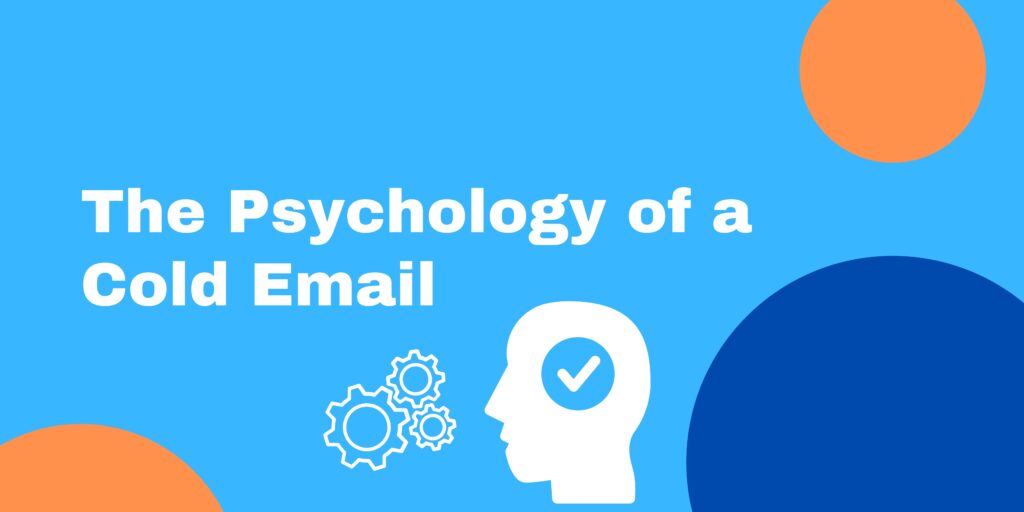The Psychology of a Cold Email

Bruce Martinus | 1/3/2021 | 7 min read

Every day, B2B business owners receive a plethora of marketing material. People are trying to sell them something from all angles, and for your cold emails to stand out – you need to understand your prospect’s emotions, problems, and needs.
Basically, you need to be doing the opposite of what the other 90% of cold email senders are doing.
This is an accurate representation of what your prospect’s inbox looks like on a daily basis:

People want to be understood
Your prospects don’t respond to emails that look like they’ve been sent to thousands of other people.
Your emails will have a higher chance of response if you’ve shown your prospect that you understand their industry and what problems they might be facing.
Sharing a useful piece of content with them is a good way to show this. Maybe you’ve created the content, or found it somewhere – the idea is that you’re providing value upfront without begging for a sale straight away.
When you share a useful piece of content, you’re increasing the chances of reciprocity and the likeliness of a response along with it.
Long Emails Get Discarded
Your prospects don’t have time to be reading super chunky emails.
The majority of the time, people only read their emails when they have a 10-minute break or when they’re commuting – so for that reason, you need to keep it quick and get straight to the point.
It also helps if you don’t write in a tone that’s overly formal because you could end up sounding generic, robotic, and quite blunt.
Remember, people want to talk to real people.
Using clear, focused, and conversational language will increase the chances of a response massively.
Instead of going for the essay-style email with chunky paragraphs, use fewer words and get to the point as quickly as possible.
They Want Proof
Social proof is one of the most important components of a cold email.
What is it that people fear the most about buying decisions?
That they’re going to regret it further down the line.

Your prospects want to speak to experts in their field, so positioning yourself as someone with knowledge and expertise will massively increase your responses.
As said before, providing some value upfront to show a couple of ways to solve your prospect’s problem will show that you truly understand them.
Then once you’ve provided some value and mutual connection, you can share how you’ve been able to help people similar to your prospect.
For example, you could say something like;
“We’ve been able companies similar to {{company}} in {{industry}}, like {{case study company 1}} and {{case study company 2}}, eliminate {{problem}}.”
Or another good way to show your social proof is by name-dropping people, companies, and events.
This shows exclusivity and people will be more inclined to reply when they’re familiar with what you’re saying and can resonate with it.
Read More About Cold Emails
- Automating Cold Email with SmartLead: A Full Guide
- How to Use Clay to Automate and Boost Your Lead Generation
- How To Stop Bounces & Boost Deliverability With Email Validation
- How to Build High Quality Lead Lists with FindyMail
- How To Warm-Up Your Cold Emails Like A Pro
- How to Achieve Consistent Cold Email Bookings
- How To Find Qualified eCommerce Clients With Store Leads
- Instantly.ai Review: The Best Cold Email Software In 2024?
- How to Secure Your First Client Without Case Studies
- Three Cold Email Personalization Tactics You Need to Know
